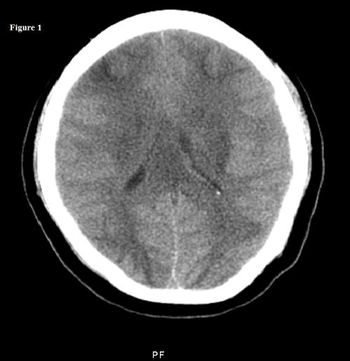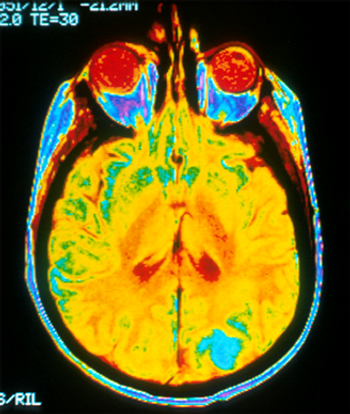
A young woman was admitted at 36 weeks' gestation with severe preeclampsia. During delivery, she experienced generalized seizures. She remained postictal throughout the normal vaginal birth.

A young woman was admitted at 36 weeks' gestation with severe preeclampsia. During delivery, she experienced generalized seizures. She remained postictal throughout the normal vaginal birth.

Headache and nausea have bothered this 28-year-old for 3 days. Over-the-counter analgesics do not help. She reports the headache lessens during the day. What more do you need to know?

As science and innovation breed new developments in medical care, we’ll be faced again and again with the same question. Who's working on the answer?

Minor subjective memory problems are very common among men-young as well as old-a new study shows.

Obstructive lung disease may be linked with problems with memory and information processing. The more diminished the airflow, the greater the impairment.

Men who are heavy drinkers show a faster cognitive decline compared with men who consume light to moderate amounts of alcohol.

Some interesting take home-points for your practice from recent studies and surveys: learn the details in this 5 question quiz.

Being emotionally available and accessible is healing. Are you open to that part of medicine with your patients?

If it feels like you are drowning at work, you need way more than a few breaths at the surface to give yourself any kind of meaningful recovery.

Regular exercise; no smoking; and maintaining a low body weight, a healthy diet, and low alcohol intake may reduce the risk significantly.

Vitamin E given daily was effective in slowing patients’ functional decline and in reducing caregiver time.

Omega-3 fatty acids in dietary supplements can cross the blood-brain barrier in persons who have Alzheimer disease, affecting known markers for the disease and for inflammation, a study shows.

“My mother was diagnosed with incurable lung cancer. I made a comic strip about it.” The idea: combine the art with the medicine.

A vaccine that is used to prevent TB may help prevent MS in persons who show the beginning signs of the disease, according to a new study.

The symptoms of a nervous system disorder often resemble those of other medical conditions or problems. Test your understanding and diagnostic skills here.

Brain cell damage similar to that seen in Alzheimer disease and other disorders results when a gene that controls the sleep-wake cycle and other bodily rhythms is disabled.

Daily acute intermittent hypoxia and dAIH combined with overground walking improved walking speed and distance in persons with chronic incomplete spinal cord injury.

Women who have post-traumatic stress disorder gain weight more rapidly than women who do not and are more likely to be overweight or obese.

Do you know what the ACIP says about mixing the zoster and varicella vaccines?

Four inpatient detentions in 4 months, but Jennifer happily caught a bus to head home. Was this case another crisis averted? Or just another flagrant waste of limited funds?

This just in: Medicare reimburses physicians 3 to 5 times more for common procedural care than for cognitive care.

Lowering blood sugar levels is a promising strategy for preventing memory problems and cognitive decline as persons age, even for those whose blood sugar levels fall within the normal range.

Electric stimulation of peripheral nerves shows promise as a long-term treatment for patients with chronic headache.

Peanut butter and a ruler may turn out to be tools that offer an inexpensive, sensitive, and specific olfactory means of screening for Alzheimer disease. Details here.

Neurological disorders have been considered a significant threat to public health for some time. Take a look at these facts and figures.